Organizing Committee
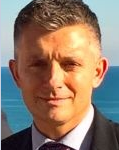
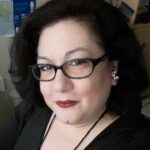
Denis is an experienced tool and business manager with a demonstrated history of working in the government administration industry. His studies in Romance languages at the University of Stuttgart, along with his professional activities, have centred around multilingualism, linguistics, translation, natural language processing, and foreign languages. Additionally, Denis has focused on semantic technologies, interoperability, knowledge organisation system creation and maintenance, and process automation.
With a track record spanning 30 years, he has dedicated some 20 years to providing linguistic services within the framework of EU institutions. Over the last decade, Denis has shifted his focus to the cutting-edge field of semantic technologies, further enriching his expertise.
Denis’ contributions to the field of language technology and translation have been recognised through his active participation in various conferences, including those centred around knowledge management. He is also deeply engaged in organising Translating and the Computer annual conferences, JIAMCATT annual and local meetings, and ENDORSE conferences and follow-up events.
Presently, Denis is engaged in activities that focus on enhancing semantic interoperability and promoting the widespread use of semantic technologies. His core mission revolves around supporting government administrations and national public services in creating, maintaining, enhancing, and disseminating semantic assets and tools. The ultimate goal is to foster increased data flows, seamless data sharing and reuse, and the promotion of further developments in the field of Linguistic Linked Open Data.
Throughout his professional journey, Denis has maintained a modest yet confident approach, consistently striving for excellence in all his endeavours. His comprehensive understanding of the language services sector and his growing expertise in the realm of semantic technologies make him a very knowledgeable professional.
In terms of accessibility, DG TRAD entered into an innovation partnership with commercial operators to develop an online real-time speech-to-text and machine translation tool for 24 languages to facilitate the accessibility of parliamentary debates for the deaf and hard of hearing. Currently, the tool can automatically transcribe and translate multilingual debates into 19 official EU languages in real time. The presenter will explain the evolution of the tool, present its functioning and the lessons learned, share the experience gained from recent testing in real life parliamentary settings and present the future steps of the project
Valentini is a PhD Candidate in Ionian’s University’s Department of Foreign Languages, Translation & Interpreting. She currently serves as a board member on the board of the Panhellenic Association of Translators (PEM), driving the Continued Professional Development (CPD) initiative as well as the Localization and Terminology workgroups. Additionally, she is currently serving as a member on the editorial board of the FIT Mundus Translatio Journal, and as a member in the Scientific Committee of the Greek Network for Terminology (EDO).
Lastly, she is a member of the ELOT TE21 Standards Committee on Language Services and Resources and ASTM’s Holistic Quality Assurance workgroup.
She is a top honor graduate of the MSc Technoglossia programme, a computational linguistics and language technology Master’s degree from Athens University, the Athens Polytechnic, the Institute of Language and Speech Processing, and the Demokritos Research Center. She holds a BA with a major in Philosophy from Athens University’s Philosophy – Psychology and Pedagogics department.
Since 1997 she has been working as a freelance language specialist for projects involving translation, editing, proofing, language quality and terminology extraction.
In 2004 she joined Oracle, namely the International Product Solutions department, as a Senior Language Specialist for the Greek language. Her corporate role also includes being part of the English terminology team as well as the Customer Feedback team, gathering language quality, usability and user experience data for all Oracle’s translated products.
Valentini joins the AsLing Organising Committee to help organise TC45, 2023, in Luxembourg 20-22 November.
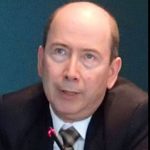
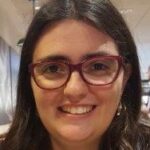
Nelson, from 2009 to 2014, Coordinator, JIAMCATT – WG on Machine Translation
Former Head, Terminology, References and Computer Aids to Translation Section (STRAIT), International Telecommunication Union (ITU), Retired from ITU on 30 September 2014 where worked since 1988. http://www.itu.int/en/
Engineer in Systems and Computer Science, University of the Andes, Bogota (Colombia), (from January 1972 to January 1977). Subject of the end of studies project: “Implementation of an automatic generator of syntactical analyzers for LR (1) grammars as a tool for compiler construction”.
Maria Recort Ruiz is a philologist, translator and terminologist who works as Document Services Coordinator and Terminology Manager at the International Labour Organization in Geneva. She is responsible for the production and management of official documents, management of terminology work and the use of new CATT tools to improve working methods.
She holds a Degree in Slavic Philology from the University of Barcelona, where she specialized in Russian and Polish Language and Literature, and Linguistics; a Master in French and Comparative Literature (19th-20th centuries) from the University of Montpellier, where she conducted research on the roman populaire at the beginning of the 20th century; and a Master in Specialized Translation from the University of Geneva.
Before joining the ILO, Maria worked as a freelance translator and editor for international organizations and the private sector.
After several years attending Translating and the Computer conferences and after giving several presentations in past years, María started her career within the Organising Committee as Deputy Coordinator for TC42 in 2020. For TC43 in 2021 she joined Olaf-Michael Stefanov as Co-coordinator. For TC44 she was the Coordinator, assisted by then AsLing President, João Esteves-Ferreira.
In November 2022 Maria was elected to become AsLing’s second President, succeeding João Esteves Ferreira who served as AsLing’s first President from 2014 through the end of 2022.
The presentation will cover six major drivers of change in today’s translation industry: machine learning; machine translation; quality control; data; interoperability of instruments; education (training). Machine learning will be applied to translation more and more and it will open up new perspectives for the translation business and raise quality assessment to a new level.
The next few years are likely to drive even more innovation in the field of translation memory management to make it smarter and to cover different forms of information display, especially phonetic language data, by expanding the potential of metadata. For sure, artificial intelligence and neuro-technologies of the new generation will be involved as well. Their development is facilitated by post-editing, which helps to identify imperfections in the work of automated translation systems.
All the above leads us to the necessity to revisit the teaching standards in all the three areas of our profession – translation, interpreting and terminology.
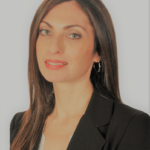
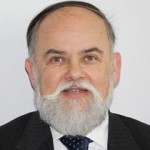
Vilelmini is an Assistant Professor at the Department of Foreign Languages, Translation and Interpreting at the Ionian University in Greece. She has taught Specialised Translation in the United Kingdom at the University of Surrey, the University of Westminster and Roehampton University, and in Greece at the National and Kapodistrian University of Athens, Metropolitan College and the Institut Français d’Athènes.
She also has extensive professional experience having worked as a professional translator, editor and subtitler.
She studied English Language and Literature at the National and Kapodistrian University of Athens and holds an MA in Translation and a PhD in Translation and Text Linguistics from the University of Surrey. Her research interests lie in the areas of the Translation of Institutional and Political Texts, Corpus Linguistics, Audiovisual Translation and Accessibility, as well as Machine Translation and Cognitive Science.
She is, among others, a founding member of the Laboratory “Language and Politics” of the Ionian University and the Greek Chapter of Women in Localization and a member of the “Research Centre for Translation and Intercultural Studies” of the University of Roehampton.
She is also a member of the Advisory Board and the Management Board of the European Master’s in Technology for Translation and Interpreting (EM TTI) funded by Erasmus+.
She has participated in several EU-funded projects, notably Resonant, Trumpet, TraMOOC, Eurolect Observatory and Training Action for Legal Practitioners: Linguistic Skills and Translation in EU Competition Law, while she has edited several volumes and books on translation and published numerous articles in international journals and collective volumes.
Having joined the Organising Committee in early 2022 she took on the role of co-coordinator for the Proceedings of TC44. Vilelmini was elected to the Executive Committee of AsLing in November 2022 and subsequently elected by the Executive Committee to be AsLing Secretary.
Olaf-Michael is an IT professional with a strong focus on multilingualism. During 36 years on staff at the United Nations he managed various information-technology related areas, the last being Library and Linguistic Support for Vienna headquarters, which included reference and terminology support for the editorial, translation and interpretation sections.
Having introduced the first completely web-based multilingual terminology database handling Arabic, Chinese, Cyrillic and Latin scripts for input, query, and output, VINTARS, he presented it at the 20th Translating and the Computer in 1998. He also introduced digital dictation and voice-recognition into the translation workflow of several international and multinational organizations.
Although retired from the UN he continues to serve in the site administration and management of JIAMCATT, an information exchange among governmental and intergovernmental language professionals, served as co-moderator of the JIAMCATT Working Group on Standards and Interoperability and implemented multilingual Web 2.0 and CMS tools for JIAMCATT.
He is also active in Tiki, a leading open source CMS, Wiki and Groupware tool and was active in drafting the ITS 2.0 (Internationalization Tag Set) standard under the aegis of the World Wide Web Consortium (W3C) in 2013.
He has been a member of the Programme Committee of FEISGILTT since 2012.
He is co-founder, Vice President and coordinateur of AsLing, the International Association for Language Technology which took over the Translating and the Computer conference series from ASLIB in 2014.
Having served as co-chair of conferences in this series from 2000 he served as lead chair in 2013. For TC37, 2015, the second conference in this series run by AsLing, he was conference coordinator, a role he had again for TC40, 2018, and once again for TC43, 2021.
He joined María Recort Ruiz as Co-coordinator for AsLing’s second virtual conference, TC43, which took place online in the week of 15 November 2021. For TC45, Olaf-Michael continues to serve on the conference Organising Committee, as he has done every year for the 10 years since AsLing took over the series.
Based in Vienna, Olaf-Michael is actively engaged worldwide in a variety of multilingual projects and conferences.

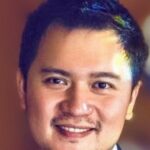
Ruslan Mitkov (Prof Dr) works as Professor in Computing and Communications at Lancaster University, one of the top-10 UK universities. He has been working in Natural Language Processing (NLP), Computational Linguistics, Corpus Linguistics, Machine Translation, Translation Technology and related areas since the early 1980s.
Whereas Prof Mitkov is best known for his seminal contributions to the areas of anaphora resolution, automatic generation of multiple-choice tests and intelligent translation memory systems, his extensively cited research (more than 300 publications including 15 books, 35 journal articles and 35 book chapters) also includes but is not limited to topics such as machine translation, natural language processing for language disabilities, automatic summarisation, computer-aided language processing, corpus annotation, bilingual term extraction, automatic identification of cognates and false friends, NLP-driven corpus-based study of translation universals and text simplification.
Prof Mitkov is author of the monograph Anaphora resolution (Longman) and sole Editor of The Oxford Handbook of Computational Linguistics (Oxford University Press) which has been hailed as the most successful Oxford Handbook and whose second, substantially revised edition was published in June 2022. Current prestigious projects include his role as Executive Editor of the Journal of Natural Language Engineering (Cambridge University Press), Editor-in-Chief of the Natural Language Processing book series of John Benjamins publishers, and Consulting Editor of Oxford University Press publications in Computational Linguistics.
Prof Mitkov has been invited as a keynote speaker at a number of international conferences.
He is and has acted as Programme Chair of various international conferences on Natural Language Processing (NLP), Machine Translation, Translation Technology, Translation Studies, Corpus Linguistics and Anaphora Resolution.
Mitkov designed and is Director of the first and only Erasmus Mundus Master’s programme in Technology for Translation and Interpreting – an innovative and inspirational programme, with a strong research focus but an equally strong emphasis on business; leading companies in the global translation and language industry participate as associated partners.
Prof Mitkov has been an external examiner of many doctoral theses and curricula in the UK and abroad, including Master’s programmes related to NLP, Translation and Translation Technology.
Ruslan Mitkov received his MSc from the Humboldt University in Berlin, his PhD from the Technical University in Dresden and worked as a Research Professor at the Institute of Mathematics, Bulgarian Academy of Sciences, Sofia. He is a Fellow of the Alexander von Humboldt Foundation, Germany, Marie Curie Fellow, Distinguished Visiting Professor at the University of Franche-Comté in Besançon, France and Distinguished Visiting Researcher at the University of Malaga, Spain.
Ruslan Mitkov is Vice President of AsLing an international Association for promoting Language Technology.
In September 2022 the renowned National Board of Medical Examiners (USA) presented Prof Mitkov with a certificate of distinguished collaboration which resulted in lasting impact on the strategic planning and decision making of the US organisation and their employment of NLP solutions to assessment for the last 17 years.
In recognition of his outstanding professional/research achievements, Prof Mitkov was awarded the title of Doctor Honoris Causa three times. First, he was became Doctor Honoris Cause at Plovdiv University in November 2011. At the end of October 2014 Dr Mitkov was conferred Professor Honoris Causa at Veliko Tarnovo University and on 25 October 2022 Prof R Mitkov received the title ‘Doctor Honoris Cause’ for the third time, this time awarded by New Bulgarian University, Sofia.
Lionel is a specialist in artificial intelligence, computational linguistics, terminology, and language technology, holding a Ph.D. in Natural Language Processing from Sorbonne Nouvelle University.
Earlier in his career, he was an Associate Researcher and Lecturer at Sorbonne Nouvelle University, where his contributions made him eligible for an Assistant Professorship. He then leveraged his expertise in key public sector roles at the Ministry of Finance in Paris, serving as Manager of New Technologies and Information Systems and as Mentor of Digital Innovation. In these capacities, he focused on implementing innovative solutions to enhance productivity and efficiency.
Currently, he contributes his extensive expertise to the International Maritime Organization (IMO) as a specialist in Computer-Assisted Translation and Terminology. Motivated by a commitment to progress, he has worked on deploying translation systems using neural networks and deep learning to support multilingual operations. In his role, he manages important resources like the eLUNa and UNTERM systems, playing a key part in advancing capabilities. His involvement extends to various IMO projects, including the IMO Digital Working Group, the New IMO Digital Publication Platform, and the IMO Travel Management System.
Beyond his valuable contributions at the International Maritime Organization, he generously shares his expertise with prominent global organizations, including the European Union (EU), the Food and Agriculture Organization (FAO), the World Health Organization (WHO), the High-Level Committee on Management (HLCM), and the United Nations Headquarters (UNHQ) in New York. He actively engages in cutting-edge projects focused on machine translation, terminology standardization, and the development of machine-readable document systems powered by artificial intelligence. Looking forward, his focus is on integrating AI and large language models into information systems, with the goal of progressively enhancing intelligence and performance.
With deep insights into the language services sector and a continuously expanding knowledge of languages and cutting-edge technologies, he is a skilled professional in this dynamic field. His career highlights a strong dedication to innovation and an unwavering commitment to advancing emerging technologies and computational linguistics.